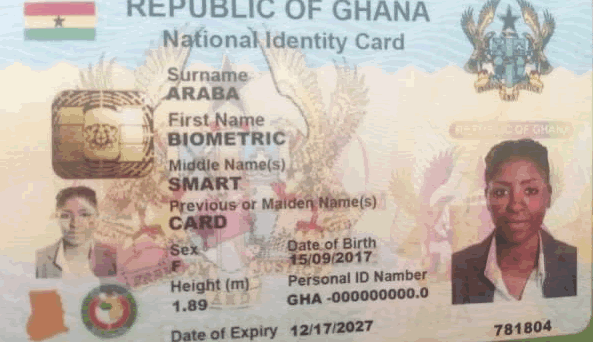President launches new national identification card
 President Nana Addo Dankwa Akufo-Addo is set to launch Ghana’s new national identification system, signalling government’s resolve to provide secure, convenient identification and authentication for Ghanaians.
President Nana Addo Dankwa Akufo-Addo is set to launch Ghana’s new national identification system, signalling government’s resolve to provide secure, convenient identification and authentication for Ghanaians.
The launch follows the readiness of the National Identification Authority’s (NIA) to embark on the new identification process.
President Akufo-Addo will today be the first recipient of the “GhanaCard”, which would later be followed by a mass registration exercise, starting with the security services and then to other segments of the population.
The President had given the NIA a September 15 deadline to roll out the process, but has insisted, based on the advices of stakeholders to start the public registration pursuant to the completion of the digital address system that would enhance the authenticity of the GhanaCard.
The GhanaCard would be a valid verification documents issued to every Ghanaian and permanently resident foreign nationals living everywhere for the purpose of identification.
The card would bear individuals personal information for easy verification of identity. It utilizes three types of biometric technology, including fingerprint, facial and eye identification unique to the holder of the card.
The NIA has deployed cutting edge technology that incorporates several layers of security features that would protect the personal information of the holder and make it difficult to forge, allowing only authorised parties to access the information on the GhanaCard.
The card contains basic information including a photograph of the holder, name, date of birth, height and personal identification number.
Depending on the age of the holder, the national identification card would have either a two dimensional barcode or a machine readable zone at the back that holds the biometric information. The holder’s fingerprints and signatures are digitised on the card.
Among its many advantages, the smart card can be used for many applications including proof of identity on the internet, automated age verification, digital signatures, encryption, physical and logical access, digital payments and storing health insurance information.
Source: GNA
